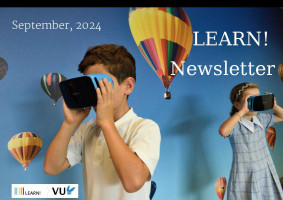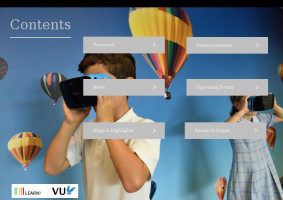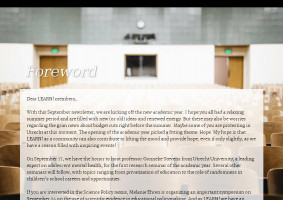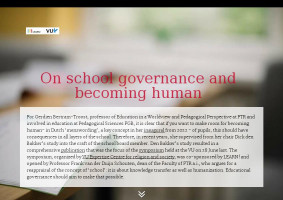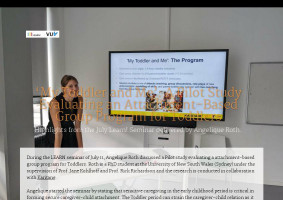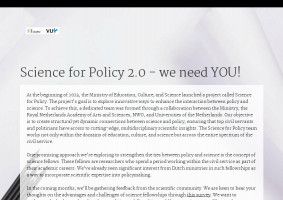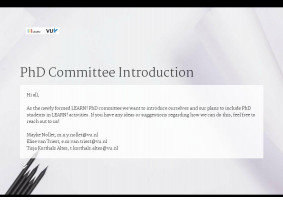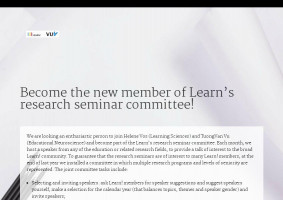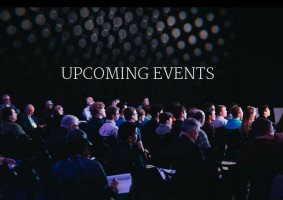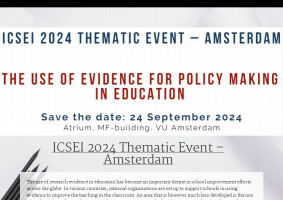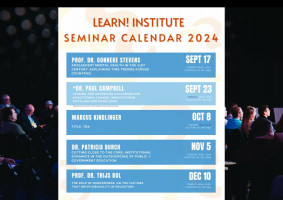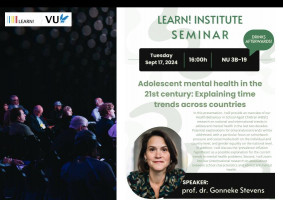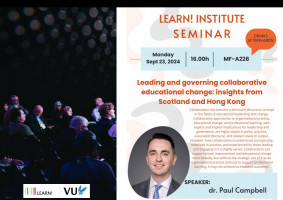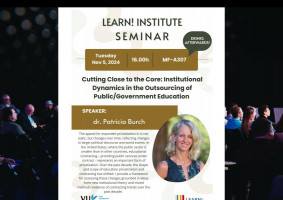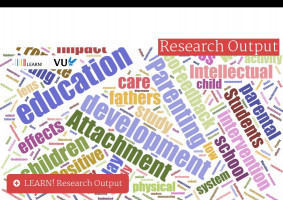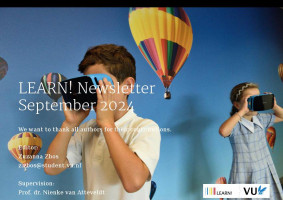For Gerdien Bertram-Troost, professor of Education in a Worldview and Pedagogical Perspective at FTR and involved in education at Pedagogical Sciences FGB, it is clear that if you want to make room for becoming human- in Dutch ‘menswording’, a key concept in her inaugural from 2022 - of pupils, this should have consequences in all layers of the school. Therefore, in recent years, she supervised from her chair Dick den Bakker's study into the craft of the school board member. Den Bakker's study resulted in a comprehensive publication that was the focus of the symposium held at the VU on 28 June last. The symposium, organized by VU Expertise Centre for religion and society, was co-sponsored by LEARN! and opened by Professor Frank van der Duijn Schouten, dean of the Faculty of FTR a.i., who argues for a reappraisal of the concept of ‘school’: it is about knowledge transfer as well as humanization. Educational governance should aim to make that possible.
Five key concepts
As a kick-off, Den Bakker shares some of the main findings of his study. In a nutshell, he first describes the literature review he conducted to substantiate his radically different perspective on school governance. From his study, he arrives at five key concepts that reflect the person, role and context of the school board member: craft, modesty, love, non-makability and community spirit. In the extensive interviews Den Bakker had with school board members in the second part of his study, these concepts appear to resonate. The current discourse of social engineering, resulting in the high degree of control and manageability, is perceived by many as a hindrance. There should be more pedagogical and human governance.
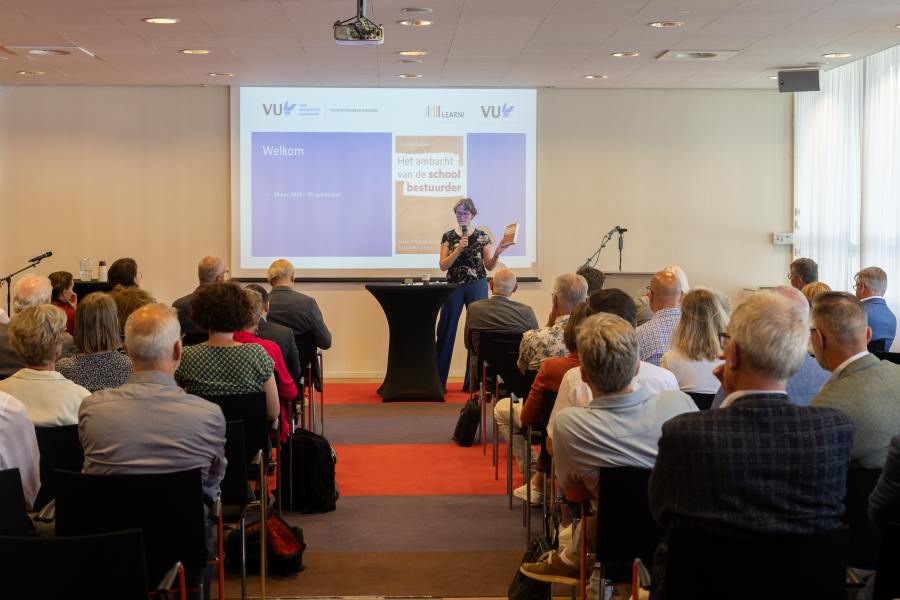
Reflections
Siebren Miedema, professor Emeritus of General Pedagogy and Religious Pedagogy at FGB and FRT, was the first to respond at the symposium, endorsing the advocated pedagogical-worldview congruence of all those involved in the school. He believes that a radical paradigm shift is needed for this to succeed and therefore advocates the establishment of a Social Pedagogical Council. Next, Melanie Ehren, professor of Educational governance at FGB, asks what the added value of school board members is or can be. She sees it mainly in mobilising the collective capacity of the various board members to counter existing problems, such as the teacher shortage. She notices how autonomous boards, which are mainly committed to their own interests, are coming under discussion.
Renée van Schoonhoven, professor of Education Law at Faculty of Law, examined how the Education Inspectorate currently issues remedial orders to schools for citizenship education. Her conclusion is that legitimacy is often lacking and that it leads to enlargement of the suffocating blanket that lies over education as Den Bakker mentioned.
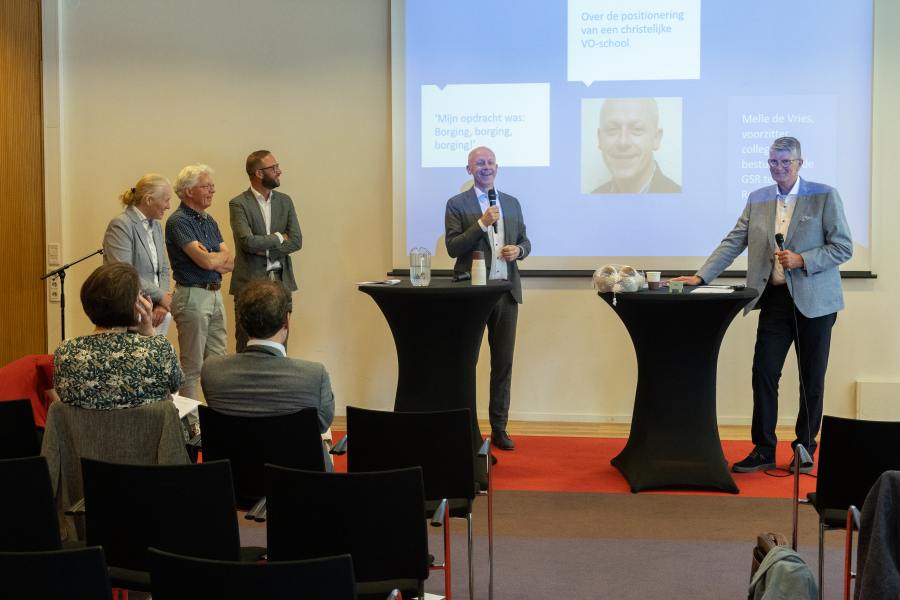
Interlude
As an interruption to the fine contributions, several school board members spoke. Interviews with them are included in Den Bakker's book. It is clear from the short conversations how much the human side, which fills out the school board member's craft, plays a role in governing. Therefore, this should be more guiding in how we look at and judge board members.
Continued reflections
Dr Martijn Nolen, director of Governance and Policy at CVO in Rotterdam, and education lawyer, continued by indicating that the term ‘governance’ as the competent authority of an educational organization has become too much of a synonym for the person as school board member. This identification distracts from the responsibility of the collective and teachers/teachers. It is therefore high time for school board members to collectively take direction on how to fulfil their role and draw up their own professional image. Dr Henk den Uijl, co-dean, researcher and lecturer at the Netherlands School for Public Administration (NSOB) in The Hague, uses Machiavelli's thinking to show that all this calls for board members who can be alternately softie or big shot. Of course, modesty and vulnerability are valuable, but sometimes it will be necessary as a board member to fire someone or stand your ground. Realizing that letting something exist that is not good, will ultimately undermine the realization of good education.
Dr Henk den Uijl, co-dean, researcher and lecturer at the Netherlands School for Public Administration (NSOB) in The Hague, uses Machiavelli's thinking to show that all this calls for board members who can be alternately softie or big shot. Of course, modesty and vulnerability are valuable, but sometimes it will be necessary as a board member to fire someone or stand your ground. Realizing that letting something exist that is not good, will ultimately undermine the realization of good education.
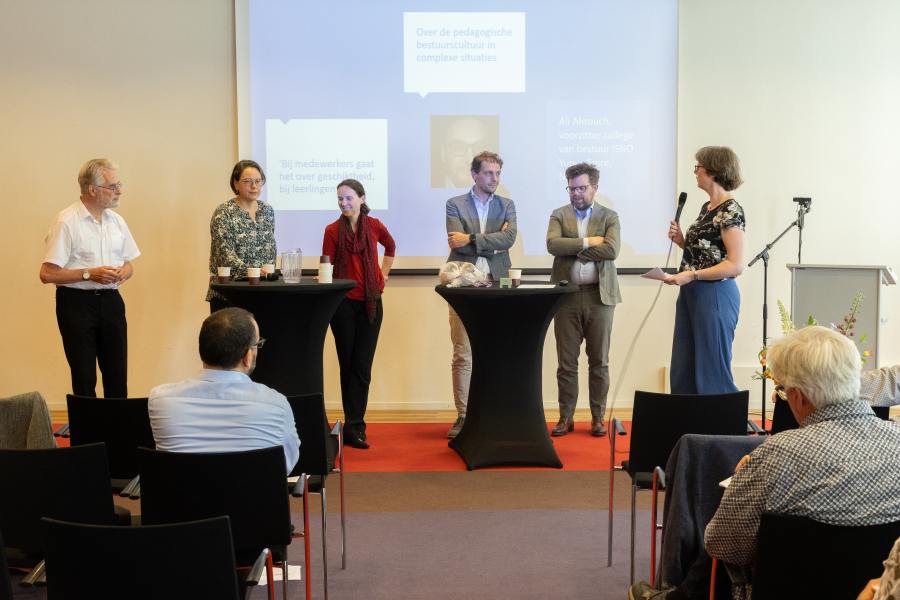
Closing
During the panel discussion, the various speakers agreed from different perspectives on the need to look at school governance radically differently. To do so, it is important not only to point at others, but to flesh out this different perspective in solidarity with each other. Erik Borgman, professor of Public Theology at Tilburg University, outlined in his closing address that there is great embarrassment in education when it comes to the question of what exactly ‘good education’ is. For Borgman, good education has everything to do with really looking at the people in education. Referring to the clog maker's craft, with which Den Bakker begins his book, Borgman asks the penetrating question of whether in education we really ‘work with the wood that is given to us?’ Do we really see the children and young people for whom education is fundamentally about? What do they ask of us? If this becomes the leading question in education, educational governance will also change fundamentally. Den Bakker's key concepts, findings and recommendations, together with the exchanges at the symposium, provide valuable impetus for further thinking through (the future of) educational governance with a view to the education of children and young people.
